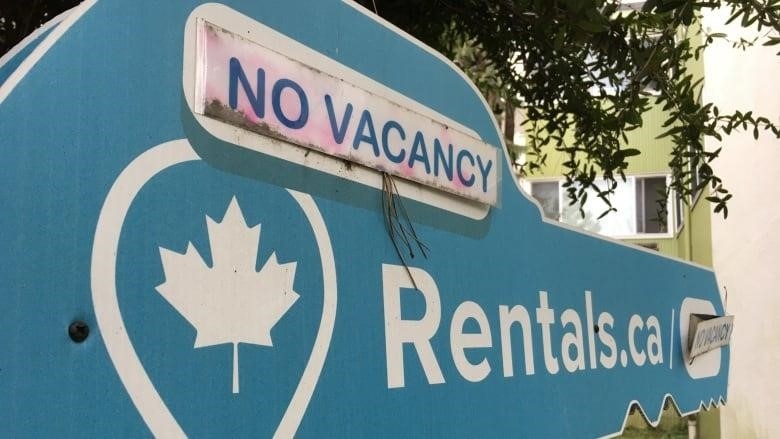
Gatineau has the highest median rent in Quebec, and there are only 0.8% of empty homes there
As Quebec’s July 1 moving day gets closer, industry groups say that more and more people are staying put this year because there aren’t many empty apartments and rental rates are going up quickly.
Rentals.ca says that the average rent for a one-bedroom apartment in Gatineau, Que., has gone up by 62.6% in four years, from $1,073 in May 2019 to $1,745 in May 2023. (Rentals.ca only shows prices from landlords who pay to list their rentals on the site.)
With that increase, Gatineau would be the most expensive city for renters in Quebec and the 23rd most expensive city in all of Canada.
If we don’t start building more homes right away, [the housing situation] will be terrible in a year or two.– Karina Osiecka, a spokeswoman for the Outaouais Housing Office
“It’s like a vicious circle right now,” said Karina Osiecka, a spokeswoman for theOffice d’habitation de l’Outaouais, which helps people find housing, including low-cost or government-funded units. “It’s like a chain reaction…. They pay more and don’t have any extra money.”
Osiecka said that some people have had to make other sacrifices to pay these high rents, and that often means going to the food bank.

Over a two-year period, Osiecka said her organization has tracked a 400 per cent increase in requests for information about housing, and a 30 per cent increase in people looking for an affordable unit.
But she said the vacancy rate in Gatineau is “practically zero,” sitting at a mere 0.8 per cent.
“What we can find on the market is really, really expensive,” Osiecka said, noting they often advise people to stay put because they likely won’t be able to find anything cheaper.
Geography a facto
Gatineau’s geography could also be playing a role.
“The Gatineau market is directly in competition with the Ottawa market, and some people are willing to pay a little bit more if they come from the other side of the [Ottawa River],” said Paul Cardinal, manager of economic service at the Association des professionnels de la construction et de l’habitation du Québec, a group of home builders and renovators.
Local economist Lukas Jasmin Tucci said he’s noticed the same trend.
“What we saw is that movement from Gatineau to Ottawa was pretty stable, while Ottawa-to-Gatineau migration was a bit stronger, so this put additional pressure on the rental market,” said Tucci, who pointed out most people rent a home before they buy one.
Cardinal noted Gatineau’s proximity to Ottawa also forces builders there to offer their employees competitive wages, driving up building costs.
He said one way to address the housing shortage is for all levels of government to remove existing barriers to construction, including speeding up permit approvals.
Another is to increase density and allow secondary dwellings such as granny suites and coach houses.
While he was in the Outaouais earlier this week, Quebec Labour Minister Jean Boulet presented a plan to the Gatineau Chamber of Commerce to modernize the construction industry.
He said the plan specifically aims to revitalize the housing sector, making it more flexible in order to reduce construction time and increase the housing supply.
Both the Office d’habitation de l’Outaouais and Association des professionnels de la construction et de l’habitation du Québec agree one of the main solutions is building more affordable housing in the city.
“If we don’t respond right now with more construction, in one year, in two years, [the housing situation] will be catastrophic,” Osiecka warned.
